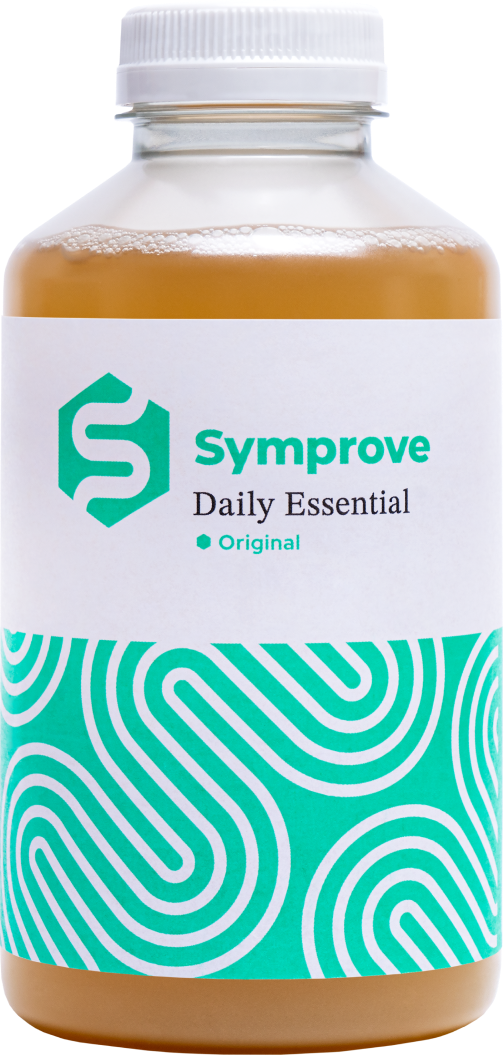As oestrogen and progesterone play a role in gut motility and pain perception, declining levels during menopause may be a trigger for gut-related symptoms. With October being Menopause Awareness Month, we asked NHS GP Dawn Harper to share her experience on what she’d seen in her clinic.
“I was interested to read the results of a recent survey carried out by Symprove showing that over a third of women questioned had experienced changes in their gut during the menopause. The most common symptoms were bloating, increased gas production and abdominal pain. These symptoms are commonly associated with Irritable Bowel Syndrome (IBS).
Interestingly 84% of the women surveyed who had the most significant menopausal symptoms, also said that they had had problems with gut health for most of their adult lives. This raises the possibility that there could be a connection between poor gut health and serious menopausal symptoms.
It is widely accepted that menstruating women who suffer with IBS often experience a flare of symptoms in the days before a period, suggesting hormonal changes can affect gut health. There is preliminary research looking into the role that the gut microbiome could play in the production of oestrogen. I find this fascinating as it could mean that looking after your microbiome through the menopause by taking a daily probiotic and eating a plant-based diet might influence the severity and duration of menopausal symptoms.
For the first ten years of my General Practice career, I was the only female partner in a seven-doctor practice and as such, I saw a lot of women’s health issues. In the 1990’s, I couldn’t do a surgery without seeing a menopausal woman wanting to discuss whether to take HRT. Then, at the turn of the century, newspapers were full of scary headlines following the results of the Million Women Study and the Women’s Health Initiative, and overnight, women stopped coming in to have those conversations, which was a real shame.
We know that three in four perimenopausal women develop symptoms, some of them severely, and it’s not HRT or nothing, but the public were so frightened about HRT, that women were undoubtedly staying away from the GP surgery and suffering through the menopause in silence. Thankfully, the pendulum is swinging back, and I am now seeing perimenopausal women in most surgeries. For some HRT can be life changing, but it’s not for everyone and I am seeing an increasing interest in alternative remedies and self-help through lifestyle changes.
We have known for a long time that the gut-brain axis is a two-way conversation and there is a lot of ongoing research into the role of probiotics in managing mental health problems like depression and anxiety, also common symptoms of the menopause. And there is ongoing research looking into the complex connections between lifestyle, hormones, metabolism, and health. It’s an exciting and rapidly growing area of medicine and one that I am watching with great interest.”
Book a 15-min online session with our team to understand how Symprove could support your patients



